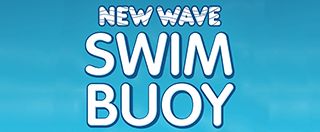Nutrition as the 4th Discipline of Triathlon
January 06, 2019Nutrition in triathlon training is probably one of the most important and yet overlooked aspects of amateur triathlon. Professional triathletes are hypersensitive to the need for nutrition both during training and during the race. Amateur triathletes, however, tend to get lax in their nutrition or don't plan their nutrition well enough and thus suffer the consequences of poor performance. To truly gain success in triathlon, you must focus in on your nutrition to get the best results.
Periodization
The first aspect of nutrition is periodization. It is very difficult to be in a strict diet in training year round. Personally, I have to have times where I "loosen the belt" and enjoy a good cheeseburger. So, understand that just as there is periodization in your training, there is periodization in your nutrition. For example, when you are narrowing in on race day you may become very strict in your diet about 8-12 weeks before race day. This gives you ample time to lose any extra weight you are carrying and to maximize your training days with quality foods. After the race, you may take a rewarding week to eat some extra food or enjoy a meal that just is not in your strict training diet. You shouldn't feel bad about this cheat period and go enjoy a great dessert. Once this cheat-week or cheat day is over jump right back into your more strict diet to prepare for your next race. In the offseason, it is important to enjoy some not so strict foods, but be careful you can put on too much weight in the offseason.
Training Nutrition
Each athlete is vastly different in terms of what they eat during training. Some of the base components of a good diet are quality carbohydrates (No McDonald's), quality proteins such as fish, chicken, and lean meats, fruits (often overlooked) and vegetables. Some triathletes become so neurotic about these different aspects that they measure everything. As someone who is very busy, this is difficult to do, however, once you find a pattern of good eating you will be able to implement a good diet for training. Do not go on a "diet" in that you minimize your calories so far that your training sessions end in weakness or "bonking." Eat 6-7 times a day with quality snacks such as fruit, low-fat cheese sticks, or protein bars. Make sure to drink ample amounts of water as your training will require extra amounts of water to avoid dehydration. Finally, pick one nutritional pattern and stick with it instead of trying so many different fads.
Race Nutrition
For each triathlon race that you compete in, you will have certain nutritional issues that you will need to deal with. For Sprint and Olympic/International distance races, you will probably just need a pre-race meal. For long course races such as a half ironman or full Ironman distance, you will not only need a pre-race meal but also need a nutrition plan for during the race. Currently, I take in 2 250 calorie Juices at around 2:30-3:00 am the day of the race. I eat a whole cinnamon and raisin bagel an hour before the race. I then use PowerBar Powergel Tangerine flavor gels before the race and during the race. I typically use a gel every:45 minutes on the bike and every:30 minutes on the run. I also use Hammer Nutrition Endurolytes before the race and at each of the intervals stated above for the gels. I also use Hammer Nutrition's FIZZ in my water bottles for the bike. The process of me finding this mix of nutrition has taken the last 6 years. Sometimes you discover things by trial and error such as my need for Accelerade during the race this last year.
Nutrition is so important for overall performance. There is not a one-size-fits-all approach. Find some best practices and begin the trial process for your own needs.
